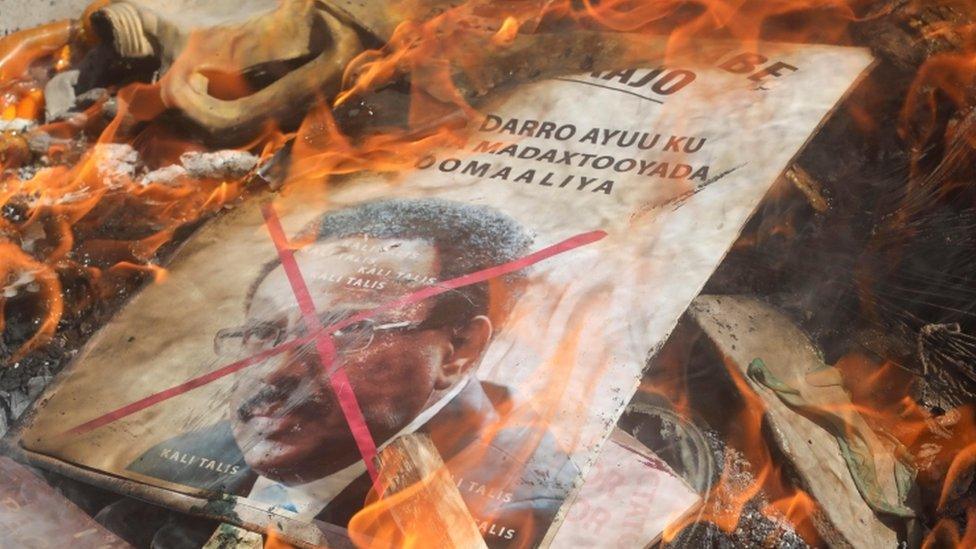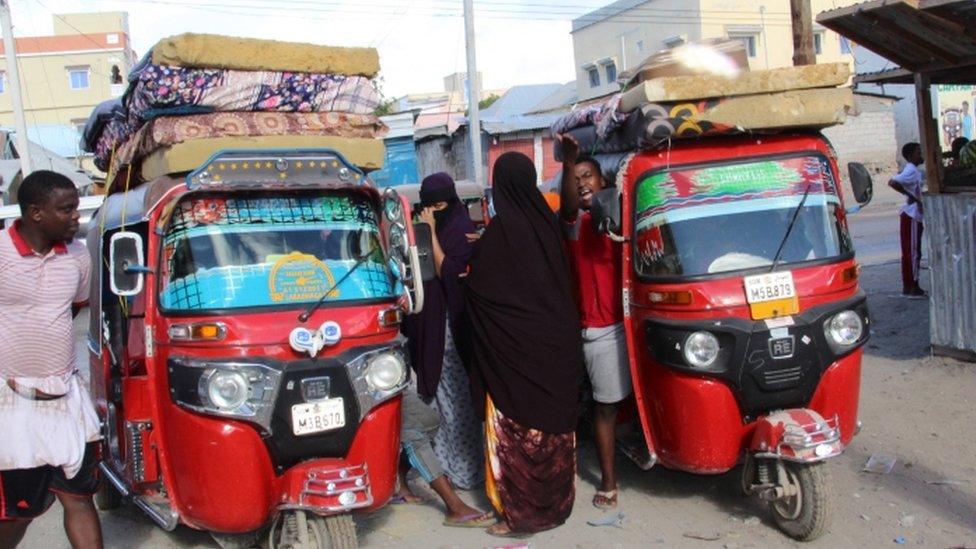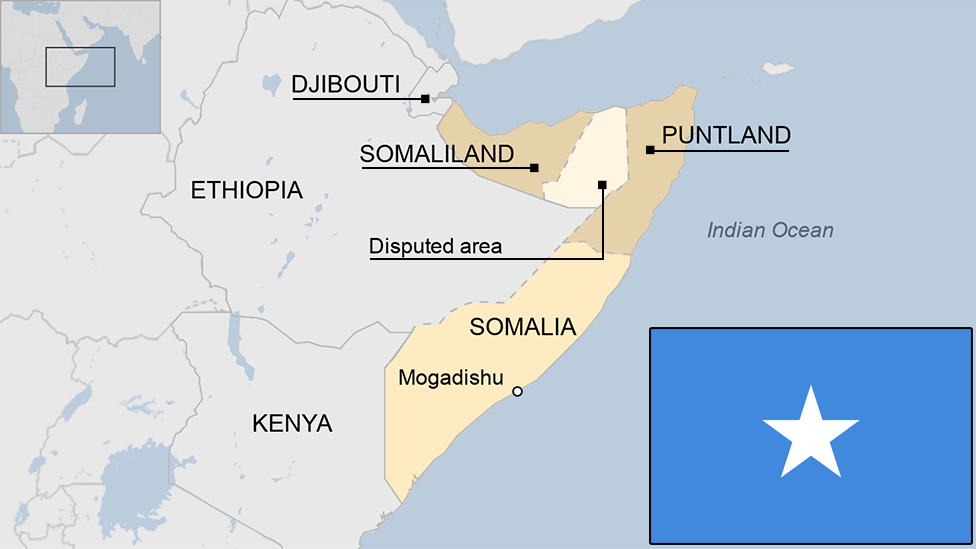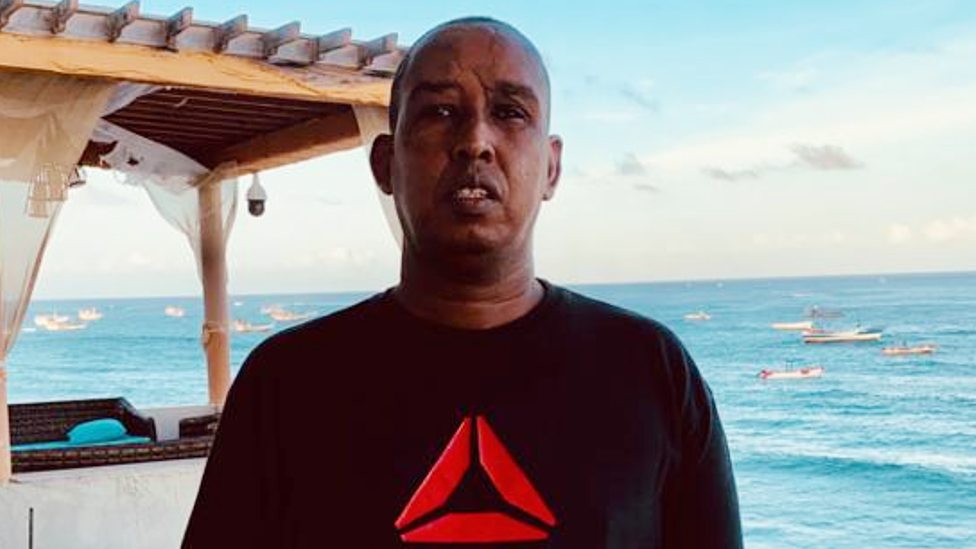Somali president in poll U-turn to stop Mogadishu clashes
- Published

President Farmajo's mandate expired in February and anger over the failure to hold elections has turned violent
Somalia's president has moved to ease tensions in the capital, Mogadishu, by calling for fresh presidential polls.
Mohamed Abdullahi Mohamed, better known by his nickname Farmajo, has said he will no longer seek a two-year extension to his term in office.
He had controversially approved the move last week after disagreements over how to hold elections.
But it provoked three days of clashes in Mogadishu between rival factions of the security forces.
There are fears the row could see Somalia lurch back towards the clan-based violence that scarred the country after the fall of the Siad Barre regime in 1991.
Meanwhile, Prime Minister Mohamed Roble has urged civilians who fled their neighbourhoods during the fighting to return home.

Up to 100,000 people are estimated to have fled their homes since Sunday
Forces loyal to the president and those backing the opposition have been occupying different parts of the city.
The UN says between 60,000 and 100,000 people have left their homes since Sunday.
President Farmajo's late-night address on Tuesday has not appeased everyone and some opposition fighters have vowed to stand their ground, saying they remain wary of his promises.
"The reaction from civil society and opposition groups in Mogadishu suggests that they welcome the retreat but everything else that brought us to the brink of civil war remains," Somali academic Abdi Samatar, from the University of Minnesota, told BBC Focus on Africa radio.
"It does not advance the negotiation process any further than we've been engaged in over the last three or four months," he warned.
Why are elections so hard to hold?
Somali elections are conducted under a complex indirect system where clan elders select MPs, who in turn choose the president.
President Farmajo's mandate expired in February but no vote has been held because of regional squabbles over how power is distributed - and a row over a new election commission.
Why is it so hard to hold elections in Somalia?
Prof Samatar says the negotiations over how to proceed with elections hinge on three issues:
President Farmajo's role in the process - some object to him having a hand in overseeing it and also being a candidate
The role of the security forces - some feel President Farmajo has not ensured that they are non-partisan
Ensuring that the election commission is neutral.
Somalia has been torn by conflict for decades but had been moving towards stability since 2012 when a new internationally backed government was installed, helped by an African Union force providing security.
The UN Security Council said on Friday that the political deadlock was diverting attention from serious problems, including the coronavirus pandemic, a locust invasion and an Islamist militancy.
Al-Shabab fighters continue to control vast swathes of territory outside the capital, and frequently attack Mogadishu.
Related topics
- Published2 January 2024

- Published19 August 2020
